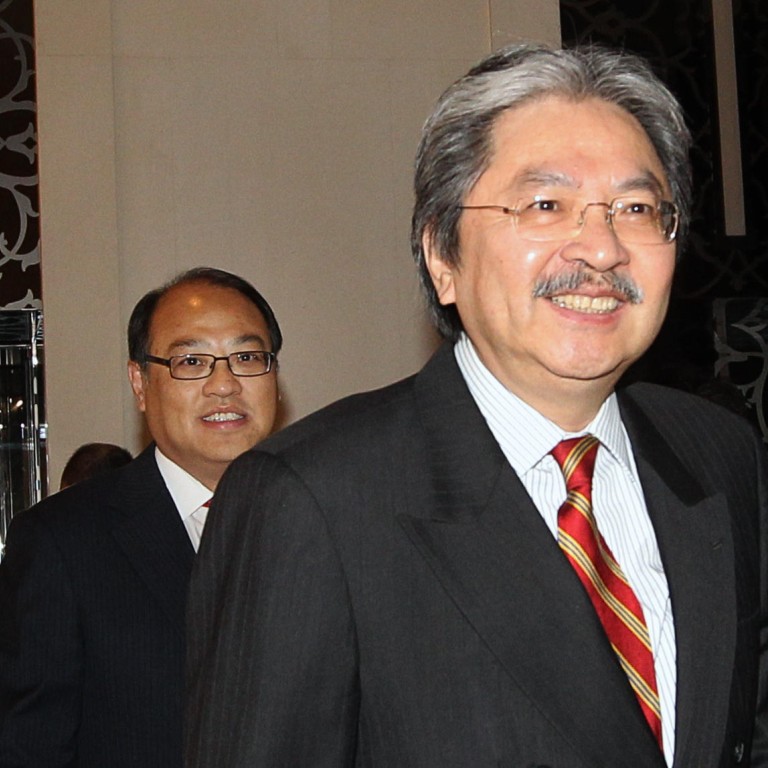
Dollars - not coffee - define social status, say Hongkongers
Wages and assets are seen as the key indicators that someone is middle class, survey finds
Drinking coffee and watching French movies may be Financial Secretary John Tsang Chun-wah's idea of "middle class", but Hongkongers have different ideas, a survey shows.
Respondents singled out high incomes, owning property and having other assets such as savings or bonds as the top three indicators of being middle class.
For example, people who earn HK$30,000 to HK$60,000 a month would be perceived as being middle class by about 45.5 per cent of the interviewees.
The median monthly household income in the second quarter was only about HK$22,000, government statistics show.
"The survey is aimed at helping us understand what the public thinks of the middle class," Bauhinia Foundation Research Centre chairman Donald Li Kwok-tung said yesterday.
"The study will be useful in forming policies targeting [their needs]" and was not aimed at defining the term, he said.
In February, Tsang tried to demonstrate that he understood the concerns of middle-class residents by saying that he, too, was one of them - because he drank coffee and liked French movies.
The foundation commissioned Chinese University's Institute of Asia-Pacific Studies to conduct the study in July. Some 1,005 people over the age of 18 were questioned.
The survey did not mention Tsang's description of the middle class. Instead, it listed as one of its 11 proposed criteria "having taste in lifestyle" - which ended up second last in the respondents' average rating of defining indicators.
Participation in social or political issues was bottom of the list.
Some 56.7 per cent of respondents said owners of properties worth HK$2 million to HK$8 million would make the cut, while 63.7 per cent thought middle-class people would have assets of HK$500,000 to HK$6 million, excluding properties.
Alvin Lee Chi-wing, district councillor and chairman of Voice of the Middle Class, said he believed the threshold for defining the status had risen, and that the possibility of joining the ranks of the middle class had shrunk.
More than half of the interviewees harboured hopes of attaining the status one day. The aspiration was highest among people aged 19 to 28.
About 30 per cent claimed they were already middle class.
It was much easier to elevate one's social status in the 1980s and 1990s, Lee said. Now, most managerial and top-level jobs were occupied by older people.
"It's not possible now. It would be very hard [for young people today], unless their parents helped out in some way - perhaps by funding their deposit for a flat," he said.
While the higher threshold could bar entry to the middle class from below, at the other end of the spectrum, the financial secretary had no chance of being cast in this category, Lee said.
"Personal preferences and behaviour should not be counted as any indicator of being middle class. [Tsang's] salary alone would already lift him way above the middle class," he said.
